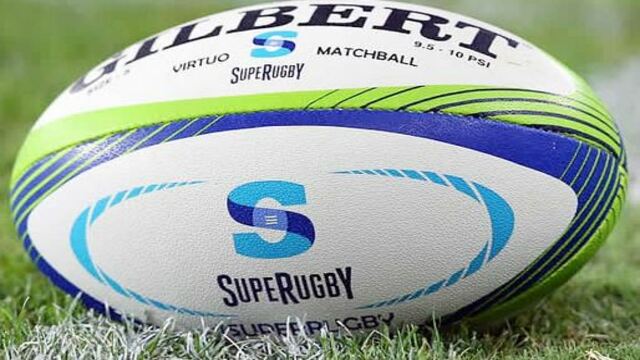How to put the super back into Super Rugby?
The recruitment of Crusaders head coach Todd Blackadder by English Premiership side Bath is just the latest example of the respect New Zealand coaches command on the global rugby stage.
It also offers further evidence that experience beyond your immediate border is also highly valued with Blackadder’s rugby CV already featuring a stint playing and coaching with Scottish side Edinburgh.
“For me this is more a career decision to keep learning and developing,” said the former All Blacks captain who will be joined at Bath by his Crusaders assistant Tabai Matson.
The appointment of Blackadder is also a major boost for the Premiership, if not England’s homegrown coaches or the system that produces them, with the 44-year-old having also been in the mix for the top job at Super Rugby rivals The Reds.
There was more cause for concern for Super Rugby in the form of Blackadder’s parting shot at the southern hemisphere’s premier competition which was not the most welcome comment on the eve of this year’s title decider.
“There’ll be some things I won’t miss like the competition structure,” he told Fairfax Media. “It’s not fair on those teams that perform consistently all competition.”
He’s not the first high profile figure to question the format that changed once again this year to accommodate 18 teams and the introduction of new franchises in Argentina, Japan and South Africa.
Stormers captain Schalk Burger no doubt echoed the frustrations of many from the field, to the stands to the press box when he told AAP, “The conference system is far too complicated, there aren’t many who even understand it.”
SANZAAR must be praised for embracing new markets and attempting to grow the game – and revenues for its members – but it is clear that the structure of the competition is far from perfect when such central figures are left frustrated and even baffled.
Understandably SANZAAR chief executive Andy Marinos recently came to the defence of the competition insisting it was ‘agreed by the SANZAAR Executive Board that oversees Super Rugby’ and which is made up of representatives of the major competing nations.
Quite rightly, he also pointed out: “A tournament’s qualification criteria cannot be determined on one years’ results in isolation."
But perhaps there is an acceptance that it is a work in progress with the governing body having also appointed management consulting services company Accenture earlier this season to work with the SANZAAR Working Group to, ‘map out the future of SANZAAR by examining three core areas: the structure of its competitions; its commercial structure; and its governance model.’
In a statement back in, Marinos insisted that SANZAAR, “are serious about continuing to deliver the best rugby competitions in the world by operating in the right territories, being innovative and ensuring we have the best players.”
Perhaps most importantly, he added, “We want competition formats with integrity to deliver growing attendances, TV audiences and fan engagement and to ensure that our National Teams remain a dominant force in world rugby.”
Rows of empty seats in stadiums for what should be compelling knock-out games are a rather brutal reminder that there is an issue when it comes to engagement.
Thankfully the final between the Hurricanes and the Lions in Wellington is a 36,500 sell out, but empty seats for crucial games should be a real worry for all involved and especially those intent on delivering ‘the best rugby competitions in the world’.
So what can be done to not only restore the faith of those committed stakeholders but also entice new supporters, viewers and sponsors?
One look at the geographical spread of the competition and the time zones and air miles that separate the teams involved is enough to illustrate the logistical nightmare facing SANZAAR.
If travel is a painful but necessary inconvenience, then arguably redemption lies in the format.
Burger, who also happens to be Premiership-bound with Saracens, is one of those to favour a return to a ‘round-robin’ that would see every team play each other as in some of the previous incarnations of the competition.
His Stormers side were starved of exposure to the in-form New Zealand sides – a fact that arguably contributed to their heavy home defeat to the Chiefs in the quarter-finals.
In addition to players wanting to challenge themselves against the most highly-rated of their rivals, fans and broadcasters want to see the best teams take on each other.
Such a change would go some way to improving the credibility – and clarity – of the competition as many continue to question the crowning of a champion who may not have played or beaten all the best sides in the competition.
However, the unpredictability of a competition can also prove positive and for the second year running Super Rugby will have a new champion this year following the Highlanders’ historic triumph in 2015.
The current format may not be perfect but we can take solace from the fact that, like Blackadder, tournament chiefs are clearly still keen to learn and develop.


